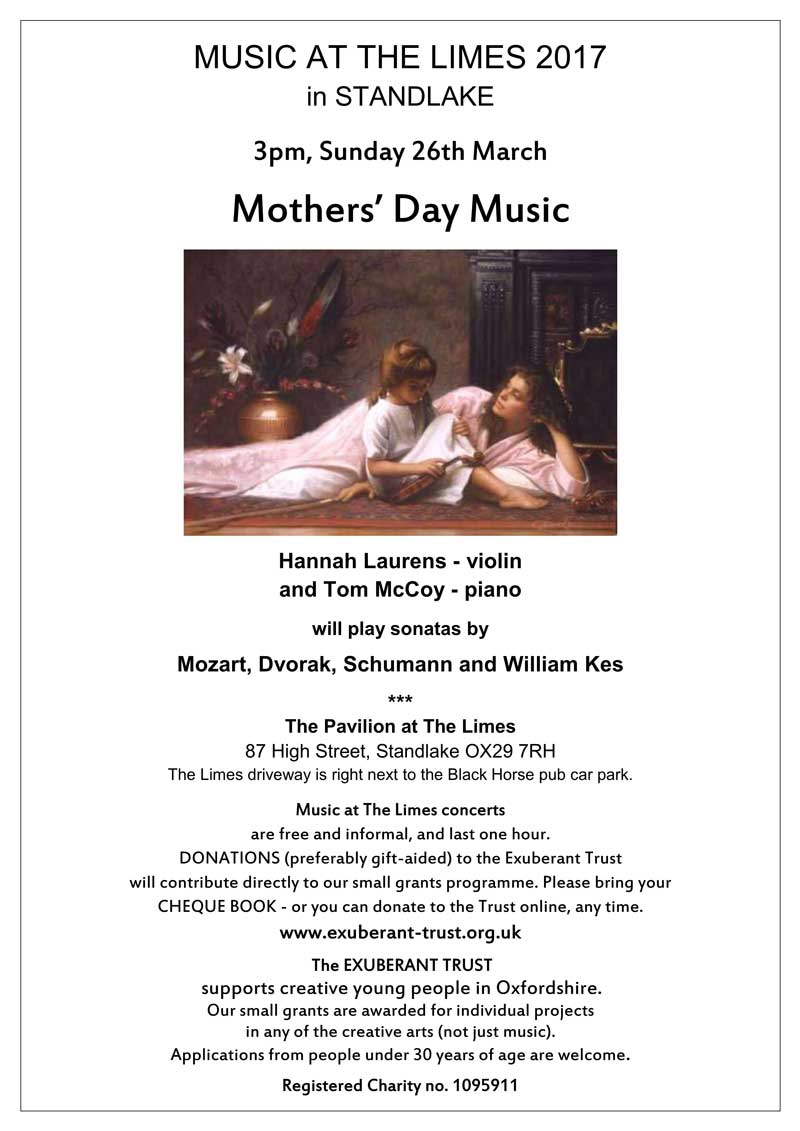
|
Programme Mozart ~ Sonata in E minor Dvorak ~ Sonatina in G major Willem Kes ~ Characteristische Tanzweisen Short Interval Schumann ~ Sonata No. 1 in A minor Programme Notes by Tom McCoy The Mozart sonata is unique amongst his violin sonatas being the only one in a minor key; it opens with a sinuous, ghostly theme that could only have been composed by Mozart. The sonata form movement is contrasted by a gentler one in rondo form. The Dvorak is a predominantly sunny piece, comprising four movements, but not too lengthy - it was composed to be played by his own children, the technical challenges of the two parts matching their relative ability. It has all the usual Dvorak hallmarks of drones, expressive melodic phrases and a folk influence in rhythm and texture. It was composed during his time in America. The Kes is from the turn of the century - a virtuoso piece in the gypsy style with expressive sections contrasting fast passagework. The Schumann Sonata is in the same A minor sound world as his Piano Concerto - turbulent, expressive and passionate. It was composed in less than a week, during the stressful time when he was musical director at Dusseldorf. This, and other chamber works of the period, were composed with the company of his wife and friends in mind. I think that it would be nice to emphasize that these are family-orientated composers - not bachelors like Beethoven or Brahms! Mozart: travelled Europe with his own family and had six children of his own with Constanze; Dvorak and his wife Anna had nine children; Robert and Clara Schumann had eight children. The Schumanns' strong devotion to one another is well-known and Mozart was very close to his own mother (he was devastated when she fell ill) and to his wife Constanze; and Dvorak was known to be a humble, family-man. |